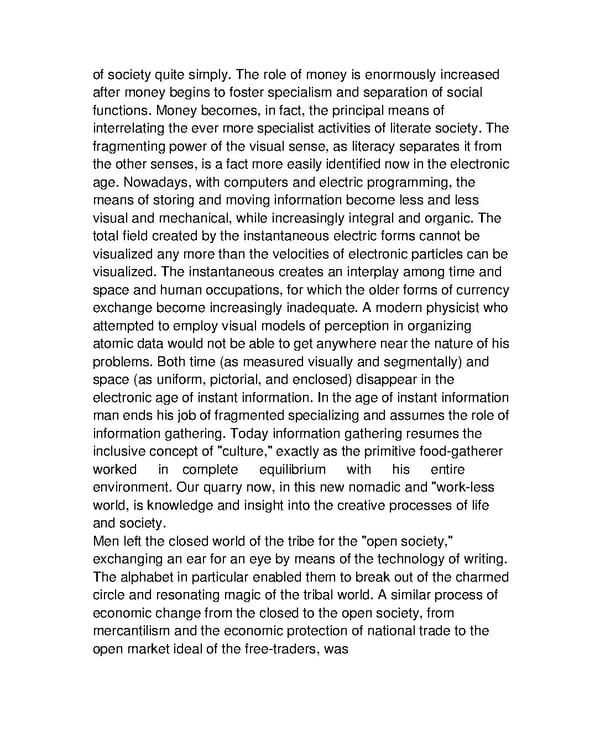of society quite simply. The role of money is enormously increased after money begins to foster specialism and separation of social functions. Money becomes, in fact, the principal means of interrelating the ever more specialist activities of literate society. The fragmenting power of the visual sense, as literacy separates it from the other senses, is a fact more easily identified now in the electronic age. Nowadays, with computers and electric programming, the means of storing and moving information become less and less visual and mechanical, while increasingly integral and organic. The total field created by the instantaneous electric forms cannot be visualized any more than the velocities of electronic particles can be visualized. The instantaneous creates an interplay among time and space and human occupations, for which the older forms of currency exchange become increasingly inadequate. A modern physicist who attempted to employ visual models of perception in organizing atomic data would not be able to get anywhere near the nature of his problems. Both time (as measured visually and segmentally) and space (as uniform, pictorial, and enclosed) disappear in the electronic age of instant information. In the age of instant information man ends his job of fragmented specializing and assumes the role of information gathering. Today information gathering resumes the inclusive concept of "culture," exactly as the primitive food-gatherer worked in complete equilibrium with his entire environment. Our quarry now, in this new nomadic and "work-less world, is knowledge and insight into the creative processes of life and society. Men left the closed world of the tribe for the "open society," exchanging an ear for an eye by means of the technology of writing. The alphabet in particular enabled them to break out of the charmed circle and resonating magic of the tribal world. A similar process of economic change from the closed to the open society, from mercantilism and the economic protection of national trade to the open market ideal of the free-traders, was
 Understanding Media by Marshall McLuhan Page 154 Page 156
Understanding Media by Marshall McLuhan Page 154 Page 156